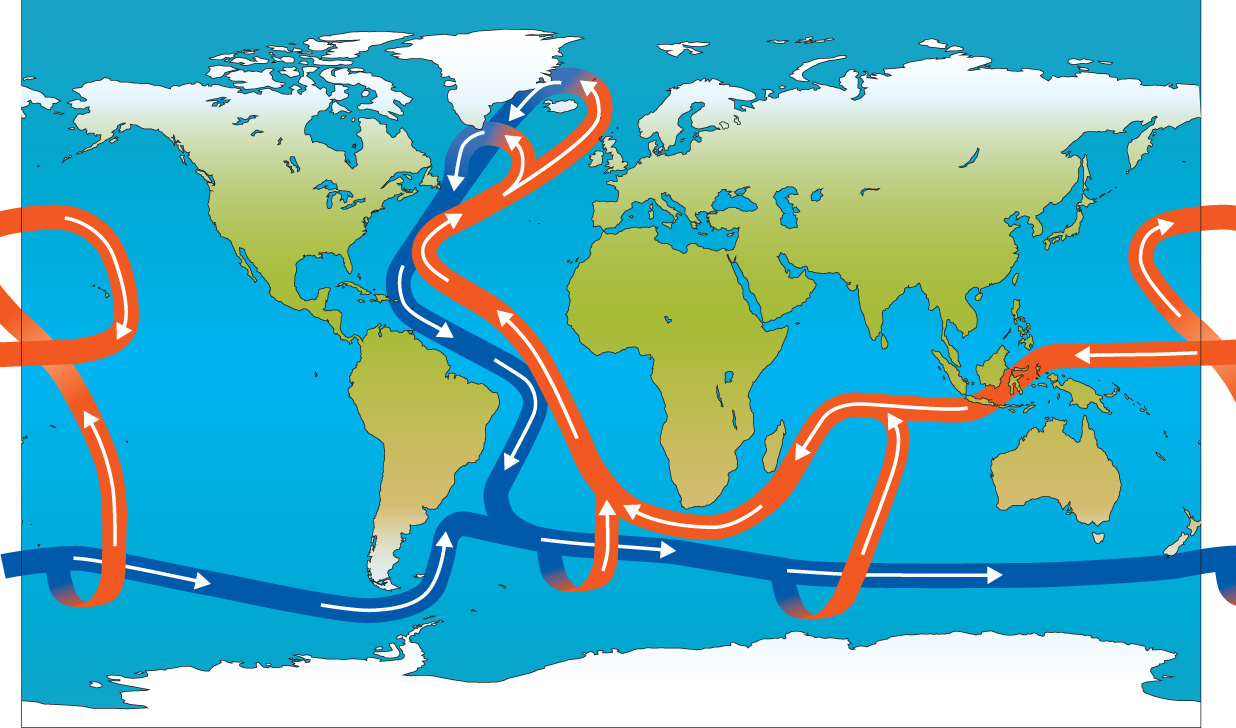Climate change: AMOC likely to withstand future warming
Author: Grahame Madge
16:00 (UTC) on Wed 26 Feb 2025
The Atlantic Meridional Overturning Circulation (AMOC) – a major transporter of heat to the north Atlantic and northwestern Europe – is unlikely to collapse this century.
The paper published in the journal Nature was led by a team of scientists from the Met Office and the University of Exeter.
Dr Jonathan Baker is a scientist at the Met Office and the paper’s lead author. He said: “The AMOC has a crucial role in regulating our climate; without it, northwest Europe’s temperatures would be much cooler.
“Our modelling study suggests that the AMOC will resist pressures from rising global temperatures and inputs of freshwater into the North Atlantic, with the weakened system being largely driven by winds over the Southern Ocean.
“Although our study shows that collapse over the next 75 years is unlikely, the AMOC is very likely to weaken, which will present climate challenges for Europe and beyond.”
Professor Watson, of the University of Exeter adds: “So the AMOC is not only controlled by conditions in the North Atlantic, but also what's happening at the other end of the Earth.”
Professor Rowan Sutton is the Director of the Met Office Hadley Centre. He said: “This study brings important new insights into the future of the AMOC. It shows that aspects of the AMOC may be more robust to a changing climate than some previous research has suggested. However, it doesn’t change our expectation that the AMOC will weaken over the twenty first century, and that this weakening will have important impacts on climate.”
This new research supports findings from the most recent IPCC assessment, which states with medium confidence that AMOC will not collapse abruptly this century. Further research on AMOC weakening is urgently needed to gain a full understanding of the system and improve predictions.

Ocean circulations with blue arrows indicating cold deep water and red arrows indicating warm surface water.
Professor Geoff Vallis, of the University of Exeter, said: "Our theoretical understanding, coupled with the use of state-of-the-art models, indicate that an imminent collapse of the AMOC is unlikely. However, this does not in any way mean that global warming is not a severe problem for society, and our planet.
“I think it very unlikely that my house will burn down in the coming years; however, I still buy insurance to guard against that risk.”
Under extreme climate change scenarios, the authors discovered the emergence of a Pacific Meridional Overturning Circulation (PMOC), which sinks in the Pacific Ocean, in most simulations. Dr Baker added: “However, this is not strong enough to balance all of the Southern Ocean wind-driven upwelling. Therefore, some level of sinking in the North Atlantic must be maintained, preventing a complete collapse of the AMOC.”





